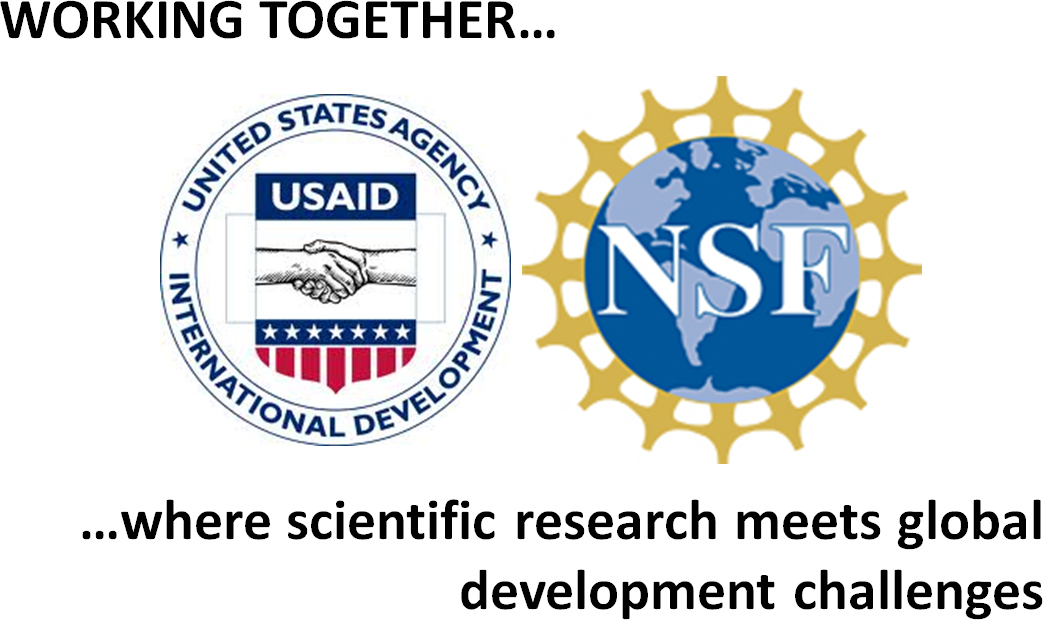PEER-funded
developing country researchers will use science and engineering to address
global development challenges
 The U.S. Agency for International
Development (USAID) has announced the first round of awards under a joint
National Science Foundation (NSF)-USAID program launched last summer.
Partnerships for Enhanced Engagement in Research (PEER) capitalizes on
competitively-awarded investments to build scientific and technical capacity in
the developing world.
The U.S. Agency for International
Development (USAID) has announced the first round of awards under a joint
National Science Foundation (NSF)-USAID program launched last summer.
Partnerships for Enhanced Engagement in Research (PEER) capitalizes on
competitively-awarded investments to build scientific and technical capacity in
the developing world.
"I am very pleased that nearly 500
scientists in developing countries submitted PEER proposals linked to awards
from every NSF research directorate, demonstrating robust international
interest and unmet potential at the interface of science and development,"
said DeAndra Beck, NSF program director for PEER.
"Through PEER, collaboration will
occur between scientists in developing countries and a variety of NSF awardees,
including small businesses, CAREER awardees, large NSF centers and
international consortia, as well as with single investigators. Each of these
collaborations will bridge a shared goal of advancing development with
science."
The USAID-funded PEER program,
administered by the National Academy of Sciences (NAS) in coordination with
USAID and NSF, convened review panels of topical experts and evaluated nearly
500 applications from 63 developing countries. Based on scientific merit,
projected development impact within country and the strength of collaboration
between developing country scientists and their American counterparts, 41
projects from 25 countries were selected for funding.
In the following examples, newly
PEER-funded proposals address important capacity needs by:
•Developing translation software to
convert spoken Arabic to Moroccan Sign Language in partnership with an
NSF-funded small business;
•Assessing ecological strategies to
assist with bird conservation in Kenya with NSF-funded students engaged in
international research collaboration;
•Monitoring air quality over the
Mongolian capital of Ulan Bator with an NSF-funded postdoctoral scientist;
•Studying marine biodiversity in
Indonesia and the Philippines in collaboration with an NSF-funded international
research and education consortium;
•Assessing landslide risk in Lebanon
with an NSF-funded engineer;
•Analyzing climate change impacts in
Colombia and Ecuador with NSF-funded climate researchers; and
•Incorporating Bali's Subak heritage
into primary and secondary education curriculum with an NSF-funded
anthropologist.
-NSF-







No comments:
Post a Comment